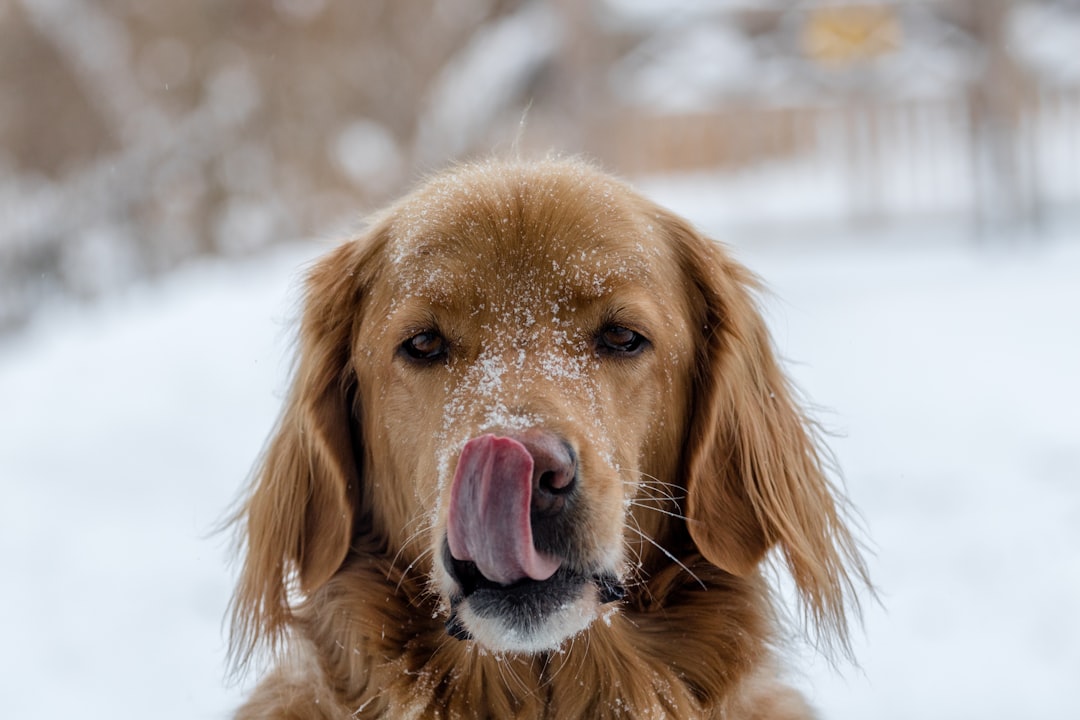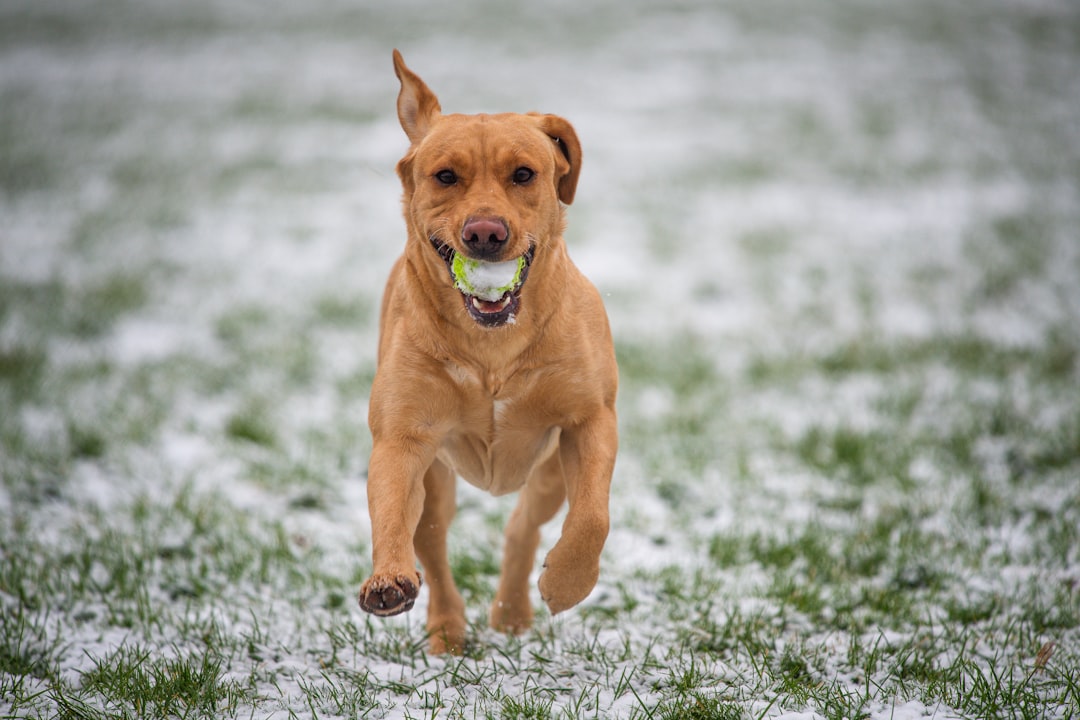This article provides an overview of common health issues in dogs during winter and offers tips on how to prevent them, including protecting dogs joints, recognizing and treating winter illnesses, managing antifreeze poisoning, and providing care for pets in winter.
Overview of Winter’s Impact on Dogs’ Health
The cold weather during winter can have a significant impact on the health of dogs. One common issue is joint discomfort and stiffness, which can be particularly challenging for older dogs or those with existing joint problems. Cold weather can exacerbate these issues, making it essential for dog owners to take preventive measures. To help reduce joint discomfort, it’s important to keep dogs active, as physical activity can improve joint mobility and reduce stiffness. For example, taking your dog for regular walks or engaging in indoor activities like hide-and-seek with treats can help keep their joints limber and alleviate discomfort.
Another way to support dogs’ joint health is by using high-quality joint supplements specifically designed for dogs. These supplements can provide essential nutrients to support joint function and reduce discomfort, especially during the colder months. Additionally, protecting dogs’ paws from ice and salt is crucial to prevent irritation and injuries. Using booties can shield their paws from harsh winter elements and keep them comfortable during walks or outdoor playtime.
In addition to joint-related issues, the risks posed by icy and snowy conditions should not be underestimated. These conditions can lead to slips, falls, and injuries for dogs. Moreover, the cold temperatures can cause their body temperature to drop, potentially resulting in hypothermia. Therefore, recognizing the signs of hypothermia, frostbite, and other winter-related ailments is crucial for ensuring the overall health and well-being of dogs during the winter months. By taking proactive measures to prevent joint discomfort, protect against winter-related injuries, and recognize the signs of potential health issues, dog owners can help their furry companions stay healthy and comfortable throughout the winter.
 Preventing Joint Discomfort and Stiffness
Preventing Joint Discomfort and Stiffness
During the winter months, dogs may experience joint discomfort and stiffness due to the cold weather. To prevent these issues, it’s crucial to keep them active. Regular physical activity helps to reduce joint discomfort and stiffness, maintaining their overall mobility. For example, engaging in indoor games and activities, such as hide-and-seek or interactive toys, can keep dogs moving and prevent stiffness from setting in.
In addition to regular exercise, using high-quality joint supplements can significantly contribute to supporting dogs’ joint health. These supplements are specifically formulated to provide essential nutrients that promote joint function and reduce discomfort, making them particularly beneficial during the colder months. For instance, supplements containing glucosamine and chondroitin can help maintain healthy cartilage and cushion the joints, alleviating the impact of cold weather on a dog’s mobility.
Furthermore, protecting dogs’ paws from the harsh effects of ice and salt is crucial. Booties can serve as a protective barrier, shielding their paws from these winter irritants and preventing discomfort and potential injuries. Moreover, keeping dogs indoors in cold weather and using clothing, such as dog sweaters or jackets, can contribute to maintaining their body temperature and preventing joint stiffness caused by exposure to low temperatures.
Lastly, it’s essential to avoid exposing dogs to extreme cold to prevent the risk of frostbite. Additionally, a slight increase in calories during colder temperatures can provide dogs with the additional energy they need to stay warm and combat the effects of the chilly weather on their joints.
 Recognizing and Preventing Common Winter Illnesses in Dogs
Recognizing and Preventing Common Winter Illnesses in Dogs
Winter can bring about various health issues for dogs, ranging from frostbite and hypothermia to flu, pneumonia, kennel cough, and the sniffles. These ailments can significantly impact the well-being of our furry friends, making it essential for pet owners to recognize their symptoms and take preventive measures. For example, frostbite can lead to tissue damage in dogs, usually affecting their extremities like the ears, tail, and paws. Symptoms of frostbite may include shivering, lethargy, unconsciousness, and drowsiness, indicating the urgent need for veterinary attention.
In addition to frostbite, hypothermia can pose serious risks to dogs, especially those with prolonged exposure to cold temperatures. Symptoms such as dropping body temperature, shivering, lethargy, and listlessness are indicators of hypothermia and should prompt immediate action to warm the dog and seek veterinary care. Preventive measures, including keeping pets indoors, limiting outdoor exposure, and utilizing protective gear like sweaters and booties, are critical to safeguarding dogs from these winter-related illnesses. Moreover, vaccines for kennel cough and providing home treatment for the sniffles can contribute to preventing these common winter ailments, ensuring the well-being and health of our canine companions.
Managing Antifreeze Poisoning and Other Winter Ailments
Antifreeze poisoning is a significant concern for pets during the winter months due to the presence of ethylene glycol in antifreeze. This toxic substance can be appealing to dogs due to its sweet taste, leading to accidental ingestion and potentially fatal consequences. Symptoms of antifreeze poisoning may include wobbly walking, lack of mental clarity, nausea and vomiting, seizures, and coma, making it crucial for pet owners to be vigilant and recognize these signs promptly. To prevent antifreeze poisoning, it’s essential to keep antifreeze out of pets’ reach, ensure pets are kept indoors if antifreeze has been used, and consider covering pets’ paws when going for a walk to minimize contact with contaminated surfaces.
In addition to antifreeze poisoning, dog owners should also be mindful of other common winter ailments that can impact their pets’ health. For instance, dry skin can be a result of dry air and home heating during the winter months, leading to discomfort and irritation for dogs. To mitigate this, pet owners can use a humidifier to add moisture to the air and help prevent skin dryness in their pets. Furthermore, it’s essential to recognize the risk of hypothermia from cars acting as refrigerators in cold weather, particularly when pets are left unattended in vehicles. This can lead to a rapid decrease in body temperature, posing a serious threat to the well-being of dogs. Therefore, it’s crucial for pet owners to avoid exposing their dogs to extreme cold and take necessary precautions to keep them safe and healthy throughout the winter season.
Providing Care for Pets in Winter
During the winter months, it’s essential to ensure that pets are kept warm and comfortable to protect them from the harsh weather conditions. Covering them with blankets, providing hot beverages, and using humidifiers can help maintain their body temperature and prevent discomfort caused by dry indoor air. For example, placing a cozy pet bed with warm blankets in a draft-free area of your home can provide a comfortable and warm sleeping space for your pet during the winter.
In addition to this, it’s important to take precautions to protect pets from the bitter cold and extreme temperatures. For instance, adding extra layers to their bedding can help insulate them from the cold floor, and avoiding excessive hair trimming can maintain their natural insulation against the cold weather. Furthermore, investing in shoes or boots for pets’ skin and paws can prevent winter-related injuries, such as cracked paw pads from exposure to ice and salt on the sidewalks. These measures are crucial for ensuring the well-being of pets during the winter season.


 Preventing Joint Discomfort and Stiffness
Preventing Joint Discomfort and Stiffness Recognizing and Preventing Common Winter Illnesses in Dogs
Recognizing and Preventing Common Winter Illnesses in Dogs